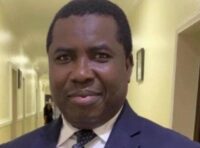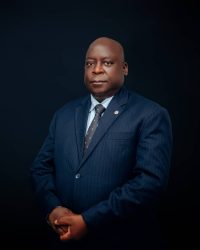Nigerian Civil Aviation Authority (NCAA) on Tuesday shed light on the legal actions that followed the dual case of Fuji musician, Wasiu Ayinde, Kwam 1, and Comfort Emmanson, who allegedly assaulted Ibom Airline airline officials.
According to the Director, Public Affairs and Consumer Protection, Mike Achimugu, of NCAA the legal actions against any airline regulation violator are the responsibility of the affected airlines, not the NCAA.
In an interview on Channel TV’s Morning Brief, he said “There is no comparison here, so it is not necessary. It’s not a case of oranges and oranges. In the Kwam 1 incident, the airline did not activate its right to take the passenger to court. So the NCAA did what it’s supposed to do, by petitioning the relevant authorities to prosecute the passenger.
“The Ibom Air incident may be because their staff was assaulted, the airline immediately activated its right to take up the matter, and then it went to court. The NCAA is not involved in the case of the Ibom Air passenger,” Mr Achimugu said.
While explaining further the NCAA’s role in the issues, the agency personnel said, “Remember that in the Kwam 1 case, the NCAA issued an advisory to Airlines Operators of Nigeria, AON, the operators, to ban the passenger.
“Meanwhile, I need to correct this impression, I’ve been saying for six months. We did update that information, and his ban is now indefinite, pending the outcome of the investigation.
“So the six-month narrative no longer holds water. But, in this particular case (Ibom Air), the airline operators, having seen some of the videos of the assault, made this decision themselves. So the NCAA is not involved in this.
“At the end of the day, in both cases, what they take away from this is that, look, the system is being tested, and there’s enough blame to go around everybody; FAAN, cabin crew, passengers. But, as with every issue, we must treat the root cause of the issue,” he explained.
She noted that “unruly behaviour is unacceptable anywhere in the world, no matter the provocation. That’s for starters. The regulations are not sentiment-based. Those rules are there for the safety of every passenger.
“Secondly, you must always obey the cabin crew aboard an airline. You don’t make the rules for safety in aviation.
“So when you are asked to do something, in this particular case, other passengers on board that aircraft are said to have been the ones who seized this passenger’s phone and turned it off. When flying with other passengers, their safety and concerns also matter.
“Your rights stop where theirs begin. There are passengers who, when the announcement has been made, ‘turn off their phones’; they feel very uncomfortable and unsafe to see the person next to them not turning off their phone.
“So the other passengers will feel very uncomfortable, you know. And this entire situation was very avoidable because when you turn off your phone, it’s only for a few minutes. You can turn it back on mid-air, so this was quite avoidable, but we’ll see what the courts say about it,” he explained.









